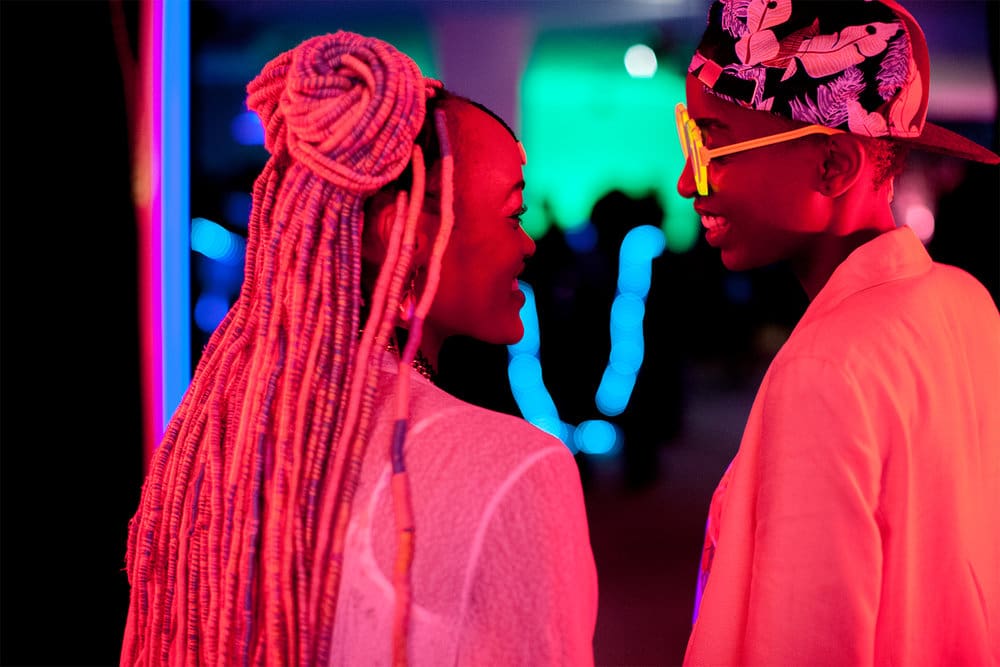
Context is key when talking about Rafiki. On the surface, the film is a relatively standard queer coming of age story following two young Kenyan women who fall in love as their fathers compete in a local election. Some could argue that we’ve seen this before. But, coming from a country where gay sex is punishable by 14 years in prison, this marks a hugely important chapter in Kenyan cinema.
Co-writer and director Wanuri Kahiu had to fight to get the movie produced, only to have it banned in her home country as the censorship board fought to have her change the ending to make it less optimistic. In the end, the film played for only seven days…but to massive crowds. Along with being the first Kenyan film to play at the Cannes Film Festival, this is a hugely significant film from 2018, and it’s lovely to see it gain an American release in 2019.
With a runtime under 90 minutes, Rafiki is nothing if not economical in its pacing. The film truly wastes no time in establishing characters, pushing the plot into motion and hitting all the major steps needed to craft an effective movie. It’s perhaps a bit too bare-boned a narrative, and we’re given very little insight into these characters’ inner lives. Even the romance itself is established a bit too quickly. Once the two leads meet, it’s only a matter of minutes before they seem fully in love with each other. As a story, it relies a bit too heavily on audiences just following along with the story beats they expect and doesn’t care to actually sell them on it.
But, perhaps because of the circumstances under which the film was made, there is a sincerity in all these moments. It feels more passionate about its love story than many of its Hollywood peers, and that helps sell the abbreviated dramatic moments. The two actresses, Samantha Mugatsia and Sheila Munyiva, have wonderful chemistry and make for compelling performers capable of transmitting emotion directly into the audience.
As the more practical of the pair, Mugatsia’s character has some really terrific material to work with, and nails many of her juicy scenes—a feat made even more impressive by the fact that this is her screen debut. Meanwhile, Munyiva brings a theatrical element to her performance as the more romantic heroine. There’s something hypnotic about her screen presence.
It also helps that the movie is truly gorgeous. Bright, neon pink is the dominant color, constantly popping thanks to Christopher Wessels’s cinematography. One breathtaking scene finds the young couple visiting a club, where stunning makeup and costumes blend with the music to create a visual feast. There’s also a lot of life in the editing too, which helps keep things exciting and, in the more serious moments, highlights the severity of the homophobia our heroines face without harping on the more grisly details.
So, in a way, that short runtime also does Rafiki a favor in its last act. Since there is so much energy onscreen, it makes the last act flow even as the story slows down and becomes more serious. In fact, the whole movie moves so fast and remains so absorbing that the flaws in the storytelling only seem to emerge upon reflection, after the fact. This is an easily accessible film for all sorts of audiences, telling an important story and being awfully romantic in the process. And for those interested in keeping up with queer cinema, or even just international cinema in general, Rafiki marks a must-watch.

